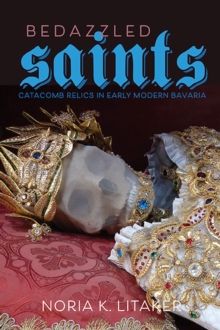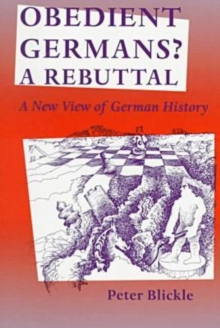
The Devil's Art : Divination and Discipline in Early Modern Germany Hardback
by Jason Philip Coy
Part of the Studies in Early Modern German History series
Hardback
Description
In early modern Germany, soothsayers known as wise women and men roamed the countryside.
Fixtures of village life, they identified thieves and witches, read palms, and cast horoscopes.
German villagers regularly consulted these fortune-tellers and practiced divination in their everyday lives.
Jason Phillip Coy brings their enchanted world to life by examining theological discourse alongside archival records of prosecution for popular divination in Thuringia, a diverse region in central Germany divided into a patchwork of princely territories, imperial cities, small towns, and rural villages.
Popular divination faced centuries of elite condemnation, as the Lutheran clergy attempted to suppress these practices in the wake of the Reformation and learned elites sought to eradicate them during the Enlightenment.
As Coy finds, both of these reform efforts failed, and divination remained a prominent feature of rural life in Thuringia until well into the nineteenth century. The century after 1550 saw intense confessional conflict accompanied by widespread censure and disciplinary measures, with prominent Lutheran theologians and demonologists preaching that divination was a demonic threat to the Christian community and that soothsayers deserved the death penalty.
Rulers, however, refused to treat divination as a capital crime, and the populace continued to embrace it alongside official Christianity in troubled times. The Devil's Art highlights the limits of Reformation-era disciplinary efforts and demonstrates the extent to which reformers' efforts to inculcate new cultural norms relied upon the support of secular authorities and the acquiescence of parishioners.
Negotiation, accommodation, and local resistance blunted official reform efforts and ensured that occult activities persisted and even flourished in Germany into the modern era, surviving Reformation-era preaching and Enlightenment-era ridicule alike.
Information
-
Available to Order - This title is available to order, with delivery expected within 2 weeks
- Format:Hardback
- Pages:192 pages, 5 black & white illustrations
- Publisher:University of Virginia Press
- Publication Date:30/06/2020
- Category:
- ISBN:9780813944074
Information
-
Available to Order - This title is available to order, with delivery expected within 2 weeks
- Format:Hardback
- Pages:192 pages, 5 black & white illustrations
- Publisher:University of Virginia Press
- Publication Date:30/06/2020
- Category:
- ISBN:9780813944074










